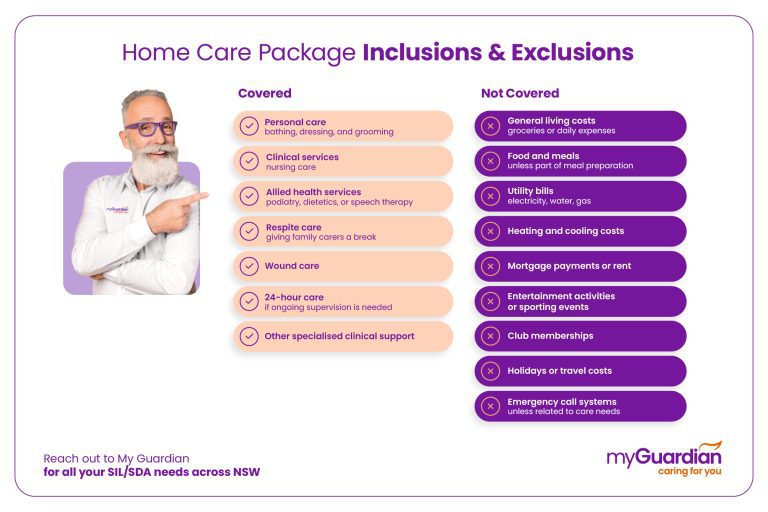Everything About Home Treatment Solutions for Individuals With Disabilities: NDIS Registered Support
Home treatment solutions under the NDIS play an essential function in supporting people with impairments. These services are designed to enhance daily living with tailored assistance, ranging from personal care to wheelchair assistance. Recognizing how to navigate these options can be complex. This summary discovers the various facets of NDIS home treatment, from offered solutions to the selection of companies, highlighting essential factors to consider for those seeking assistance. The journey toward empowered treatment starts below.
Recognizing the NDIS and Its Purpose
The National Handicap Insurance Plan (NDIS) acts as a transformative structure created to offer support and solutions for people with impairments. Established to enhance the lifestyle and guarantee equitable accessibility to crucial sources, the NDIS empowers individuals by using customized strategies customized to their one-of-a-kind requirements. It aims to promote freedom, allowing people to seek their personal goals and aspirations.Through a structured approach, the NDIS allots funding for numerous supports, consisting of education and learning, work help, and community involvement. This all-encompassing scheme not just focuses on instant care however additionally stresses long-lasting developmental outcomes. By advertising option and control, the NDIS motivates participants to select their recommended company, ensuring that treatment lines up with their values and choices. Inevitably, the NDIS stands for a considerable commitment to improving the lives of individuals with specials needs, promoting inclusivity, and building an extra supportive society.
Sorts Of Home Care Solutions Available
Different kinds of home care solutions accommodate people with specials needs, largely concentrating on individual care aid and break treatment options. Personal care aid offers important assistance with day-to-day activities, while respite care supplies short-term alleviation for main caretakers. Recognizing these services is important for ensuring the well-being of both people with specials needs and their family members.
Personal Care Aid
While navigating everyday life can present challenges for individuals with specials needs, personal treatment aid provides crucial support tailored to their special demands. This kind of home care solution includes an array of activities developed to advertise freedom and improve lifestyle. Individual care aides assist with everyday jobs such as showering, dressing, brushing, and toileting, ensuring individuals preserve individual hygiene and convenience. They may also aid with dish prep work, drug administration, and flexibility support. By supplying individualized treatment, these specialists encourage people to involve even more completely in their day-to-day regimens and social tasks. Generally, individual care support plays a considerable function in promoting self-respect and autonomy for those with impairments, allowing them to prosper in their home atmosphere.

Respite Treatment Options
Respite care works as a necessary resource for families and caretakers of people with impairments, supplying short-term relief from the needs of day-to-day caregiving. This kind of solution can take different kinds, including at home break treatment, where skilled professionals see the home to assist with treatment tasks. Conversely, family members might select facility-based break treatment, where individuals get care in a specialized setting, allowing caretakers to relax. In addition, some organizations provide emergency reprieve solutions for unanticipated scenarios. These options not only assist ease caregiver anxiety yet additionally promote the wellness of people with impairments by offering them new experiences and social communication. In general, respite treatment plays an essential duty in supporting both caretakers and those they take care of.

Just How to Accessibility NDIS Home Treatment Services
Accessing NDIS home care services involves recognizing the qualification requirements stated by the National Disability Insurance Policy Scheme. People need to navigate a structured application procedure to secure the essential support tailored to their needs. This section will clear up both the qualification requirements and the steps involved in looking for services.
Qualification Standards Described
To get NDIS home care solutions, individuals need to satisfy certain eligibility requirements that assess their special info needs and scenarios. Candidates must be matured in between 7 and 65 years and have a long-term and substantial disability that affects their capacity to do day-to-day activities. Additionally, they need to be an Australian person, a long-term local, or hold a Protected Unique Category Visa. The NDIS needs proof of the special needs, generally with medical analyses or records. Furthermore, individuals ought to show that they call for assistance to participate in social and financial life. These criteria ensure that services are directed towards those who really require assistance, promoting self-reliance and improved quality of life for individuals with disabilities.
Application Refine Steps
Can I Choose My Own Assistance Workers Through NDIS?
The individual inquired whether they can pick their own assistance employees under the NDIS structure. Typically, participants have the adaptability to pick assistance employees, promoting personalized treatment that aligns with their certain demands and choices.
What Happens if My Requirements Modification After Obtaining Assistance?
They should interact these adjustments to their service supplier if a person's requirements modification after receiving support. Changes can be made to the care plan, guaranteeing that the support stays appropriate and efficient for their situations.

Are There Restricts on The Number Of Hours of Care I Can Get?
The specific inquired regarding potential limitations on the number of care hours obtained. Usually, such restrictions might exist based upon particular plans or funding plans, highlighting the importance of examining standards and agreements frequently.
Can I Utilize NDIS Financing for Home Adjustments?
The question of using financing for home modifications occurs regularly. Normally, individuals might make use of NDIS funding for essential adjustments to their homes, making certain ease of access and safety, contingent upon meeting details qualification requirements and guidelines.
Just how Do I Take care of Complaints About My Home Care Providers?
To resolve issues regarding home care solutions, individuals ought to initially record their problems. They can communicate straight with their solution provider, seeking resolution, or escalate the problem to pertinent oversight bodies if necessary. Home treatment solutions under the NDIS play a pivotal function in sustaining people with impairments. Different types of home treatment services cater to people with disabilities, largely focusing on individual treatment help and break treatment alternatives. home care package providers. Individual treatment assistance provides hop over to here necessary support with daily tasks, while reprieve care uses short-lived relief for key caretakers. Families may opt for facility-based reprieve treatment, where people obtain treatment in a specific atmosphere, enabling caregivers to take a break. How can households effectively take care of the economic aspects of home care services for people with disabilities?